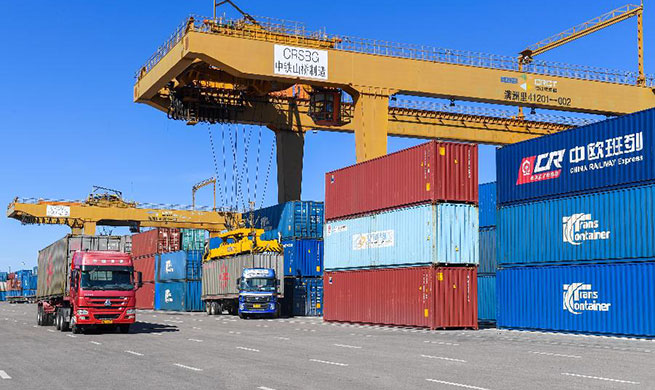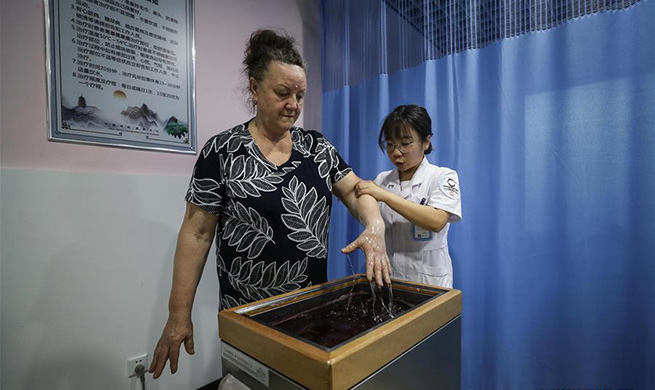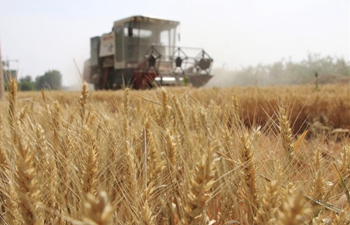NAIROBI, June 4 (Xinhua) -- Kenya and World Bank on Tuesday launched an initiative aimed at providing a platform for Kenyan youths to use their talents in developing innovative solutions to drive manufacturing.
Betty Maina, principal secretary for industrialization at the Ministry of Industry, Trade and Cooperatives said that Kenya Industry and Entrepreneurship Project (KIEP) will strengthen innovation ecosystem as part of implementation of the Kenya industrial transformation program.
"The project marks an important milestone towards the ongoing digitizing and transformation initiatives for Kenya's global competitiveness that is expected to create additional jobs for the youths," Maina said at the launch in Nairobi.
Maina revealed that the five billion shillings (about 50 million U.S. dollar) project that is co-funded by the World Bank will also create industry platform to link startups, traditional industries and international networks in select private sector firms for the next six years.
She added that the project will also aid small and medium enterprises (SMEs) in improving their managerial and technical capabilities in order to better compete at both local and international markets.
The official said that KIEP will help enhance intra-Africa trade through increased productivity and competitiveness of Kenyan firms.
"The development of private sector is the key to growth, job creation and youth empowerment in the developing countries," Felipe Jaramillo, World Bank country director for Eritrea, Kenya, Rwanda and Uganda said.
Jaramillo said that SMEs are a pillar for the development of national economies and requires necessary support.
He urged the government to adopt digital economy as a blueprint for supporting ecosystem to elevate the project to the next level.
"With proper application of innovation, productivity and digital solutions, Kenya can be the leader in Africa in trade related matters," Jaramillo noted.
KIEP is based on the Kenya Vision 2030 that seeks to transform Kenya into a newly industrialized, high middle-income nation. The project will benefit 33,050 individuals and 2,393 firms, including students, SMEs, and local startups.













